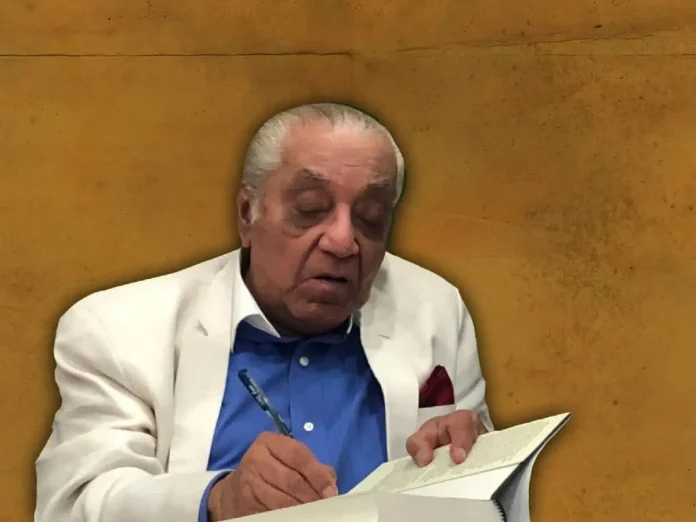A.G. Noorani was a constitution expert, lawyer and a columnist par excellence
– Uzma Ausaf
Renowned Constitution expert, lawyer and political columnist, A.G. Noorani passed away this afternoon. Born in 1930, he was a prolific writer and social and political commentator of great distinction. A respected critic of Hindutva politics, Mr Noorani always backed his arguments with substance. He practiced as an advocate both in the Supreme Court and the Bombay High Court but got recognition only when he wrote about the Constitution and political matters.
Beginning with the Indian Express in 1961, he went on to write on regular basis for The Statesman between 1992 and 2000 and later for Hindustan Times between 2000 and 2008. Importantly, his column used to appear on the edit page of these newspapers. It was a rare privilege reserved for very few people.
Mr Noorani who was 94 when he passed away due to age-related illness in Mumbai did a fortnightly column for Frontline magazine between 1990 and 2022. Interestingly, he had his admirers across the border in Pakistan as well where the popular Dawn newspaper ran a regular column by him. His writings were often translated into Hindi, Urdu and other languages and used in publications across the country.
Mr Noorani was also a prolific author who wrote 16 books and was working on his seventeenth when he died. His books on the RSS titled, The RSS and the BJP: A division of Labour, Savarkar and Hindutva, and the RSS: A Menace to India are documents of great historical importance. Similarly, his books on the Ayodhya disputes titled, The Babri Question: A Matter of National Honour and Destruction of the Babri Masjid: A National Dishonour are like an encyclopedia of the monument and its disputes. Mr Noorani wrote with equal depth on Kashmir.
His books, Article 370: A Constitutional History of Jammu and Kashmir and The Kashmir Dispute are a significant contribution to understand the historic dispute of the border state. Mr Noorani did not confine himself to politics, he wrote with honesty about Islam as well. His book, Islam and Jihad: Prejudice verses Reality came out more than twenty years ago but is still regarded as a must read.
All this was made possible because Mr Noorani was a very well-read man. On the one side he read about Savarkar and Hedgewar as also Golwalkar, on the other side he read with interest about Nehru and Karl Marx. Similarly, he used to read the writings of Abul Ala Maududi and kept in touch with the progress of Jamaat-e-Islami Hind. Likewise Noorani read daily newspapers and a magazine like Radiance with similar interest.
He belonged to the old school and used to mark the articles and outline them for future reference. Not known to many people, Noorani sahab was a practicing Muslim and was not known to miss his daily prayers. As far as his writing is concerned, Noorani sahab’s language was simple which made it easier for the masses to understand him. Similarly, his knowledge of legal affairs was second to none. He had a great memory and could quote the previous judgements of the courts and articles of the Constitution accurately.
Mr Noorani, who lived with his caretaker in the last years of his life in Mumbai, was also fond of good food. His love for Mughlai food was legendary and he could go in search of Qorma or Biryani to any place. He, however, developed some issues of temper in later years of his life and could lose his cool in a political discussion or if somebody interrupted him while speaking.
Mr Noorani was a humble man otherwise and carried the wisdom of his long life with humility and dignity. With his death, political discourse will not be the same again and India will miss an important voice on matters of Constitution. The discussion on Ayodhya, Kashmir and even Muslim politics will remain incomplete without him.




